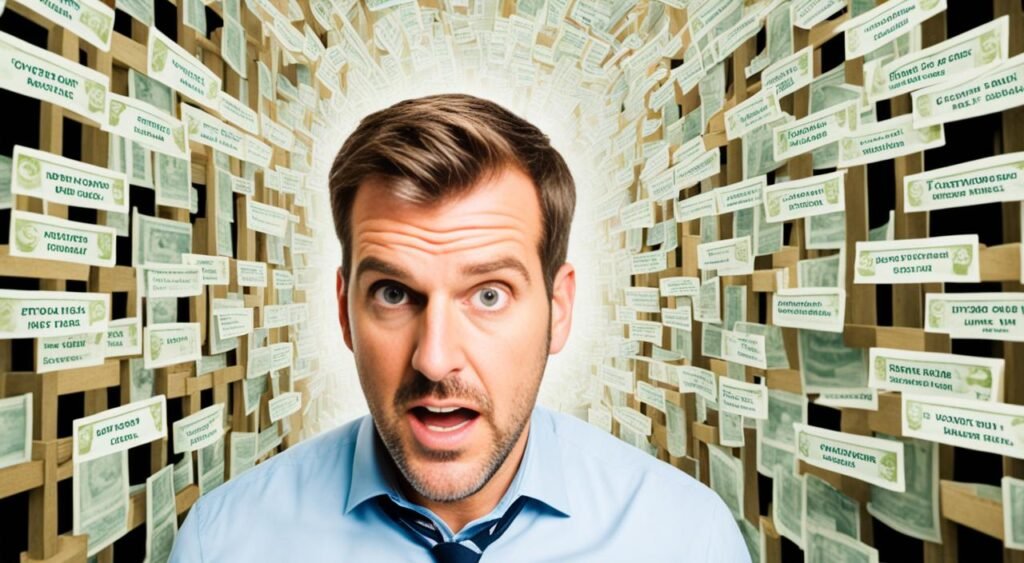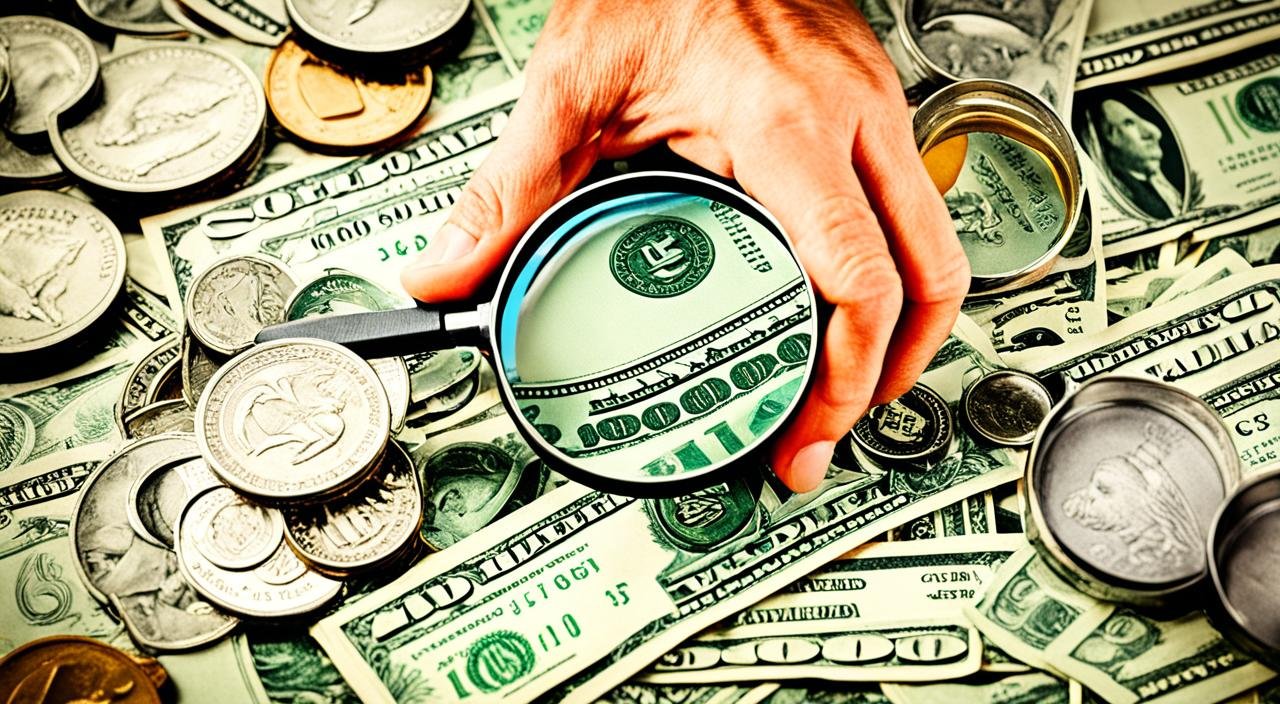How Do You Navigate Business Loan Rates To Get The Best Deal?
Getting a business loan is a big step in growing your business. But figuring out interest rates can be tricky. As a business owner, you need to know what affects business loan rates. And you must understand how to approach borrowing to get a good deal. This guide will dive into business loan interest rates. It will help you make smart choices and use your money well.
Business loan interest rates in the U.S. vary a lot. They depend on the loan type, lender, and your financial situation. Traditional bank loans usually have rates between 6.25% to 13%. On the other hand, SBA loans might be between 6.25% to 8.75%. But, online loans can go from 7% to as high as 99%. The type of loan, whether it’s fixed or variable, and various rates also affect the interest you pay.
Lenders can add more fees on top, like origination fees and SBA guarantee fees. These extra charges can bump up the loan’s total cost. Your credit score, business finances, and time in business count a lot when it comes to deciding your interest rate. To get a good rate, work on a solid business plan, boost your and your business’s credit, and build a good relationship with a lender. Also, have your financial records in order when you apply for a loan.
Key Takeaways
- Business loan interest rates can vary significantly based on the type of loan, lender, and the borrower’s financial profile.
- Factors like credit score, business finances, and time in business play a crucial role in determining the interest rate.
- Lenders may charge additional fees, such as origination fees and SBA guarantee fees, that can impact the total cost of the loan.
- Preparing a strong business plan, improving personal and business credit, and establishing a relationship with a lender are important steps to secure the best business loan rates.
- Understanding key concepts like fixed vs. variable interest rates, APR, AIR, and factor rates can help you navigate the business loan landscape effectively.
Current Average Business Loan Interest Rates
Interest rates for business loans in the U.S. can vary a lot. It’s key for small business owners to know these rates. This helps them choose the best business loan for their needs.
Traditional Bank Loans
Loans from big national and local banks usually have 6.25% to 13% in interest rates. Factors like loan amount, repayment term, and credit score affect these rates.
SBA Loans
The Small Business Administration (SBA) offers loans with rates between 6.25% to 8.75%. These SBA loans have lower interest rates and longer to pay back. So, they’re a good choice for many small business owners.
Online Loans
Alternative lenders online offer business loans with rates from 7% to 99%. The interest rate depends on the lender’s risk view, borrower’s credit, and loan type.
Average rates can change and are influenced by the lending market, specific lender, and borrower’s finances. So, comparing different business loan options is wise. Small business owners should look for the best loan with the lowest interest rate for them.
Understanding Interest Rates for Business Loans

When looking into a business loan, know the two main interest rate types: fixed and variable. These rates will affect how much you pay back over time.
Fixed vs. Variable Interest Rates
A fixed interest rate keeps the same for the loan’s entire life. This gives you stable, set monthly payments. On the other hand, a variable interest rate can change. It might start lower than a fixed rate but could go up. This makes predicting costs harder for business owners.
Annual Percentage Rate (APR)
The Annual Percentage Rate (APR) shows the full cost of a business loan, including the interest and any fees. It’s a great way to compare costs of different loans accurately.
Annual Interest Rate (AIR)
The Annual Interest Rate (AIR) is just the base interest on the business loan, with no extra fees included. Knowing the AIR helps understand the initial cost. But, for the full loan cost, look at the APR.
Factor Rates
Some business lenders, especially those with merchant cash advances or short-term loans, use factor rates. These are multipliers on the loan amount. They often lead to higher effective interest rates than traditional loans.
It’s key to understand these interest rate ideas. They will help when you’re comparing business loan options. This way, you can choose what’s best for your small business.
Business Loan Fees to Consider

In addition to the interest rate, lenders may charge various fees associated with business loans that can impact the total cost of borrowing. Some common fees to be aware of include:
Origination Fees
Origination fees are charged to cover processing and underwriting a business loan. They vary from 1% to 5% of the loan amount and are paid at the start or taken from the loan proceeds.
SBA Guarantee Fees
The Small Business Administration charges a fee for SBA loans. This fee can be between 0.25% and 3.75% of the guaranteed portion of the loan amount. It helps cover the SBA’s risk in guaranteeing parts of the business loan.
Servicing Fees
Servicing fees are also charged by lenders for processing payments, record keeping, and customer service. They are a small part of the outstanding balance. These fees change with the lender and loan type. ,small business owners can better evaluate the true cost of a business loan and make an informed decision on the best financing option for their business needs
Factors Impacting Business Loan Rates

Many things can affect the interest rates given to small business owners. Things like the owner’s credit score, the company’s financial health, and how long the business has been open matter to lenders.
Credit Score
Your personal credit score really matters when getting a business loan. It shows how good you are at managing debt and paying on time. A high credit score means you’re more likely to get low interest rates and good loan terms.
Business Finances
The company’s financial health is a big deal too. Lenders look into your revenue, profitability, cash flow, and debt. They use this to figure out how risky it is to lend you money. Companies doing well financially can often get lower rates and better loan deals.
Time in Business
How long your business has been open also plays a role in rates. Older businesses look less risky because they have a history of success. On the other hand, newer businesses might face higher interest rates to cover the risk lenders see in them.
Knowing about these factors helps business owners. They can use this knowledge to aim for the best financing terms and support their business’s growth.
Also read: How Do I Choose The Best Loan?
business loan rates
Business loan rates can change a lot. They depend on the loan type, who is offering it, and the borrower’s finances. For instance, bank loans have rates from 6.25% to 13%. But SBA loans might have rates between 6.25% to 8.75%. Online loans can have much higher rates, from 7% up to 99%.
One big thing that affects how much you pay is if the rate is fixed or variable. Fixed rates stay the same, making budgeting easier. Variable rates can go up or down with the market. Lenders look at the APR and AIR to figure out the whole loan cost.
There are some extra fees you might face too, like origination fees and SBA guarantee fees. Your credit score, your business’s financial health, and how long you’ve been in business also tweak the interest rates you’re offered.
To get the best deal, small business owners should do a few things. Make a detailed business plan. Work on improving their credit scores. Build a good relationship with a lender. And, gather all the financial papers needed. Knowing how rates are set helps you make the best choices for your business.
FAQs
Q: What are the different types of business loans available?
A: The different types of business loans available include term loans, lines of credit, SBA loans, business credit cards, and personal loans.
Q: How can I find the best business loan for my specific needs?
A: To find the best business loan for your specific needs, consider factors such as your credit score, business revenue, years in business, and the purpose of the loan. You can also use a business loan calculator to compare different loan options.
Q: What factors affect the interest rate on a business loan?
A: Factors that can affect the interest rate on a business loan include the lender’s assessment of your creditworthiness, the type of business loan you choose, market conditions, and whether the interest rate is fixed or variable.
Q: How do I compare business loan rates from different lenders?
A: You can compare business loan rates from different lenders by reviewing the annual percentage rate (APR), loan term, total interest paid over the life of the loan, and any fees associated with the loan.
Q: What is the average interest rate for business loans in the current market?
A: The average interest rate for business loans can vary depending on the type of loan, the lender, and market conditions. It’s important to research current rates and terms to ensure you get the best deal.
Q: Should I choose a fixed or variable interest rate for my business loan?
A: Whether you should choose a fixed or variable interest rate for your business loan depends on your risk tolerance and your ability to budget for potential rate changes. A fixed rate offers stability, while a variable rate can fluctuate with market conditions.
Q: How can I apply for a small business loan?
A: To apply for a small business loan, you typically need to submit a loan application, provide business and personal financial documents, demonstrate your ability to repay the loan, and possibly offer collateral depending on the type of loan.
Source Links
- https://www.business.com/articles/choosing-a-small-business-loan/
- https://blog.hubspot.com/sales/business-loan-interest-rates
- https://www.lendingtree.com/business/rates/
